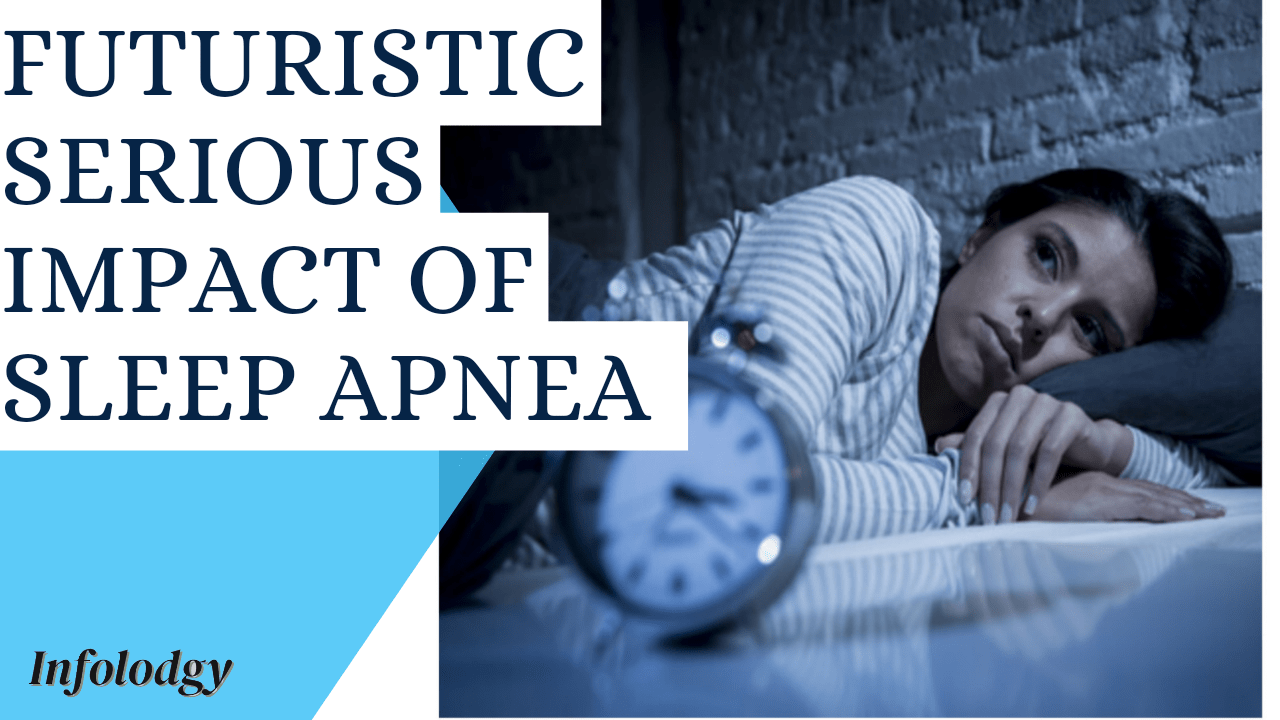Are you sacrificing sleep for a packed schedule?
Do you think that catching up on sleep during the weekend is a good idea?
Think again…….
The futuristic serious impact of sleep apnea and consequences of sleep deprivation are not just immediate; they can significantly affect your future. In this article, we’ll delve into the eye-opening insights shared by Matt Walker in his TEDx talk about the long-term effects of inadequate sleep and sleep apnea. From learning and memory to immune health and even DNA, we’ll explore how insufficient sleep and sleep apnea can derail your life.
Introduction
Sleep is often seen as a luxury we can forgo in our busy lives. However, the impact of sleep deprivation and sleep apnea goes beyond mere tiredness. Matt Walker’s TEDx talk sheds light on the profound repercussions of inadequate sleep and sleep apnea on our future well-being. This article will dissect his insights, highlighting the importance of prioritizing quality sleep and addressing sleep apnea for a healthier, more productive life.
Sleep and Learning: The Memory Deficit
Hitting the “Save Button” on Memories
According to Walker, sleep and sleep apnea play a vital role in learning and memory. While we’ve long understood the need for sleep and managing sleep apnea after learning to consolidate memories, recent discoveries suggest that sleep and addressing sleep apnea before learning are equally crucial. They prime your brain, preparing it to absorb new information. Without adequate sleep and without addressing sleep apnea, memory circuits become waterlogged, making it challenging to retain new experiences.
The Brain’s Memory Inbox
Walker’s research highlights the significance of the hippocampus, often referred to as the brain’s “inbox” for new memories. In well-rested individuals who are managing sleep apnea, this structure shows healthy learning-related activity. In contrast, those deprived of sleep and struggling with sleep apnea exhibit a lack of significant signals in the hippocampus, hindering the ability to commit new experiences to memory.
Enhancing Memory Through Sleep Quality
Walker’s team has uncovered that deep sleep, characterized by specific brainwaves and sleep spindles, acts as a file-transfer mechanism. It shifts memories from a vulnerable short-term reservoir to a more permanent long-term storage site in the brain. This process safeguards memories, making them more resilient. Managing sleep apnea is also crucial in optimizing this memory-enhancing process.
Also read: Bad effects of watching short videos
Sleep, Aging, and Cognitive Decline
Aging and Sleep Quality
Aging inevitably leads to a decline in learning and memory abilities. Simultaneously, the quality of sleep and managing sleep apnea deteriorates, particularly in obtaining deep sleep. Walker’s research reveals a significant interrelation between age-related cognitive decline, sleep apnea, and disrupted deep sleep.

Alzheimer’s Disease and Sleep Apnea
Furthermore, Walker’s team has uncovered a connection between sleep apnea, sleep disruption, and Alzheimer’s disease. The disruption of deep sleep, coupled with sleep apnea, emerges as a contributing factor to cognitive decline in aging and Alzheimer’s. This discovery offers hope that improving sleep quality and addressing sleep apnea may reduce the risk of Alzheimer’s.
Sleep Apnea, and Your Body: Beyond the Brain
Cardiovascular Impact and Sleep Apnea
Sleep loss, especially when compounded by sleep apnea, has a swift impact on your cardiovascular system. Surprisingly, even just an hour less of sleep can lead to a 24-percent increase in heart attacks the following day. The reverse holds true when gaining an hour of sleep. The effect extends to car accidents, road traffic incidents, and suicide rates. Managing sleep apnea can significantly mitigate these risks.
Immune System Vulnerability
Natural killer cells, essential for immune defense, become compromised with sleep deprivation and untreated sleep apnea. Walker’s research shows that restricting sleep to four hours for one night, especially when sleep apnea is unaddressed, results in a startling 70-percent reduction in natural killer cell activity. This weakened immune system leaves individuals more susceptible to various forms of cancer, including bowel, prostate, and breast cancer. Addressing sleep apnea is crucial in bolstering immune health.
DNA Alternations
Sleep deprivation doesn’t spare your DNA, and managing sleep apnea is vital in this context as well. A study by Walker reveals that limiting sleep to six hours a night for one week distorts the activity of 711 genes. Half of these genes are associated with promoting tumors, chronic inflammation, stress, and cardiovascular disease. The impact on your DNA underscores the comprehensive reach of sleep deprivation and untreated sleep apnea within your body.
Strategies for Better Sleep and Managing Sleep Apnea
The Importance of Regularity
Walker advises maintaining a consistent sleep schedule, going to bed, and waking up at the same time every day, even on weekends. Regularity anchors your sleep and enhances both its duration and quality, especially when managing sleep apnea.
Keep It Cool and Address Sleep Apnea
Your body’s core temperature needs to drop by a few degrees Fahrenheit to initiate and maintain sleep. Ensure your bedroom temperature is around 65 degrees Fahrenheit (18 degrees Celsius) to optimize your sleep environment, particularly when addressing sleep apnea.
The Importance of Regularity
Walker advises maintaining a consistent sleep schedule, going to bed, and waking up at the same time every day, even on weekends. Regularity anchors your sleep and enhances both its duration and quality, especially when managing sleep apnea.
Keep It Cool and Address Sleep Apnea
Your body’s core temperature needs to drop by a few degrees Fahrenheit to initiate and maintain sleep. Ensure your bedroom temperature is around 65 degrees Fahrenheit (18 degrees Celsius) to optimize your sleep environment, particularly when addressing sleep apnea.
Conclusions
In a world that often prioritizes productivity over sleep, Matt Walker’s TEDx talk serves as a wake-up call. The detrimental effects of sleep deprivation, sleep apnea, and untreated sleep apnea are not limited to fatigue but extend to learning, memory, immune health, cardiovascular well-being, and even your genetic code. Recognizing the vital role of sleep, addressing sleep apnea, and committing to improving sleep quality is essential for a healthier, more fulfilling future.
FAQ: Addressing Common Questions
Is it possible to catch up on missed sleep over the weekend?
No, you can’t “catch up” on lost sleep. Sleep and addressing sleep apnea are not like a bank where you can accumulate a debt and repay it later. Prioritizing regular, quality sleep and managing sleep apnea is crucial.
How can I improve my sleep quality and address sleep apnea?
Maintaining a consistent sleep schedule, keeping your bedroom cool, and addressing sleep apnea are essential steps to enhance sleep quality.
What’s the link between sleep, sleep apnea, and Alzheimer’s disease?
Research suggests that disrupted deep sleep, compounded by sleep apnea, is linked to cognitive decline in aging and Alzheimer’s disease. Improving sleep quality and addressing sleep apnea may reduce the risk of Alzheimer’s.
Can lack of sleep and untreated sleep apnea affect DNA?
Yes, sleep deprivation and untreated sleep apnea can alter the activity of genes associated with tumor promotion, chronic inflammation, stress, and cardiovascular disease.
Why is deep sleep important for memory, and how does it relate to sleep apnea?
Deep sleep, characterized by specific brain waves and sleep spindles, facilitates the transfer of memories from short-term to long-term storage, protecting them from degradation. Managing sleep apnea is crucial for optimizing this memory-enhancing process.
see the full video here: Sleep is your superpower
Matt Walker’s insights underscore the urgency of prioritizing sleep, addressing sleep apnea, and managing sleep apnea in our lives. Sleep, sleep apnea, and addressing sleep apnea are not a luxury but a biological necessity that profoundly impacts our present and future well-being. It’s time to reclaim our right to quality sleep and manage sleep apnea for a healthier, more fulfilling life. Good night, good luck, and above all, sleep well.


3 thoughts on “Futuristic serious impact of sleep apnea”